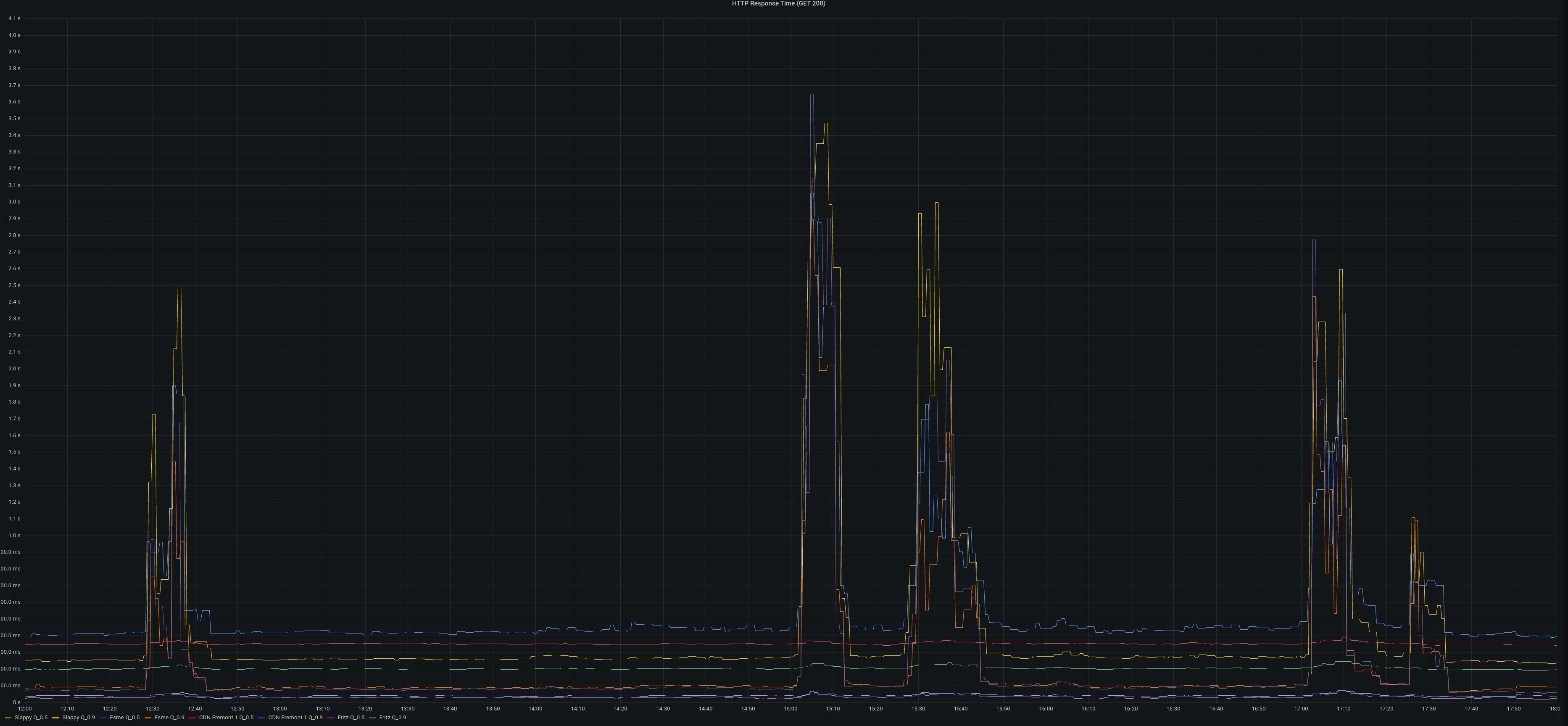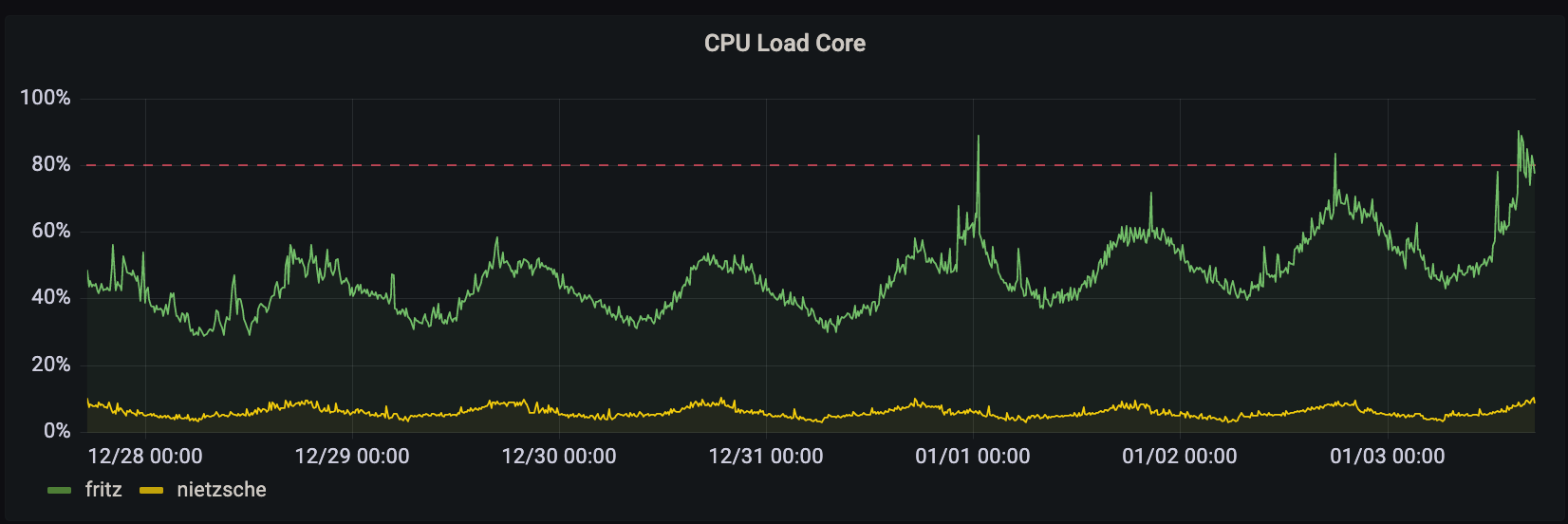Fritz on the fritz
On January 3th, 2023 at approximately 12:30 UTC Hachyderm experienced a spike in
response times. This appeared to be due to a certificate that had not been
renewed on fritz, which runs the Mastodon Puma and Streaming services. The
service appeared to recover until approximately 15:00 UTC when another spike in
response times was observed.

Alerts were firing in discord alerting us to the issue.
Background
fritz runs mastodon-web and mastodon-streaming and all other web nodes proxy
to fritz.
mastodon-web was configured with 16 processes each having 20 threads.
mastodon-streaming was configured with 16 processes
Impact
p90 response times grew from ~400ms to >2s. increase of 502 responses to >1000 per minute.
Root causes and trigger
organic growth in users and traffic coupled with the return from vacation of
the US caused the streaming and puma processes on fritz to use more CPU. CPU
load hit >90% consistently on fritz. this in turn caused responses to fail to
be returned to the upstream web frontends.

Lessons Learned
response times are very sensitive to puma threads (reducing from 20 to 16 threads per process doubled GET response times).
the site functions well with fewer streaming processes.
Things that went well
we had the core CPU load on the public dashboard.
Things that went poorly
in an attempt to get things under control both mastodon-streaming and mastodon-web were changed. puma was then reverted as we had over-corrected and response times were getting quite bad.
no CPU load alerts were configured for fritz specifically.
Where we got lucky
@dma was already keyed in to fritz thanks to an earlier issue where
certs hadn’t been renewed.
Action items
1) Streaming processes reduces @dma [repair]
Reduced the number of streaming processes on fritz from 16 to 12.
2) Better alerting on CPU load @dma [detect]
We should implement better CPU load alerting on every host to detect these issues and be able to respond even more quickly.
3) Postmortem documented @dma
This blog post and a hackmd postmortem doc.